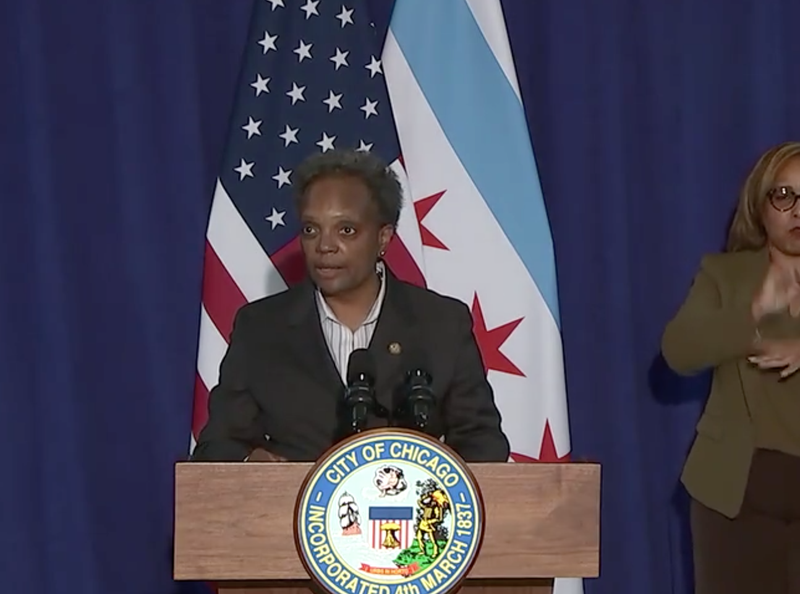
CHICAGO (WBBM NEWSRADIO) -- The Lightfoot Administration is strengthening is roster of mental health services across the City of Chicago.
Mayor Lightfoot and Chicago Department of Public Health (CDPH) Commissioner Allison Arwady, M.D., announced Tuesday the awarding of $8 million in annual grant funding to 32 community-based organizations to provide trauma-informed mental healthcare in the city’s areas of highest need.
According to the Mayor, the 32 centers of care will work with the existing CDPH mental health clinics in comprising a mental health safety net system where all persons can receive care regardless of ability to pay, health insurance status, or immigration status.
"The Framework for Mental Health Equity is a clear commitment to creating an effective, accessible and inclusive mental health system that cares for and heals the whole person," Lightfoot said. "This unprecedented $8 million investment will do just that and move this framework forward by providing tens of thousands of additional Chicagoans in our under-resourced communities with the care they need—regardless of their ability to pay, health insurance status or immigration status. I am grateful to CDPH and every center of care that has partnered with us on this investment and look forward to continuing to work with them as we close the mental healthcare gap once and for all."
This investment is the centerpiece of the Framework for Mental Health Equity that was announced by Mayor Lightfoot and CDPH last year to transform mental healthcare with a focus on equity. Under this Framework, CDPH has doubled its mental health budget from 2019 and prioritized investment on Chicago’s South and West Sides, which is consistent with the city’s focus on equity and neighborhood re-investment.
“For too long, the people most in need of mental healthcare have not been able to access it when and where they need it, and the consequences of this can be tragic,” Dr. Arwady said. “That’s why we were so deliberate in making sure these investments are going to communities where they are needed most and to publicly-funded organizations who are the experts doing this work on the ground.”
Of the 32 funded proposals, 30 will also expand mental health services for children, adolescents, and young adults, and all 32 will expand services into community areas of highest need. Grantees include Community Mental Health Centers (CMHCs), Federally Qualified Health Centers (FQHCs), and other community-based organizations, with single organizations funded at $240,000 and partnership proposals funded at $350,000 per year through 2022.
Olivio Medical Center is one of them and CEO Esther Corpuz said such services are needed.
"Only about 33 percent of Hispanic adults with mental health receive treatment each year, compared to the U.S. average of 43 percent. Our communities deserve better," she said.
Dr. Arwardy said her department will also spend over a million and a half dollars on organizations that can provide mental health treatment for the homeless.
"We are going to take care of people's mental health needs, their substance-use needs, particularly complicated by issues of homelessness," she said. "And we are going to do this regardless of where people live in Chicago."
The Mayor said "if we are truly going to have a mental health system, we must bring care outside the clinic walls and invest in services for people simultaneously experiencing homelessness and living with serious mental illness and substance abuse disorders..."
Mayor Lightfoot said the city is building a trauma-informed mental health system that also focuses on people living with gun violence, too.
The Lightfoot Administration said this investment will bolster the current safety net system with resources that can be used to hire more staff, expand existing services, fund new programs in communities of high need and promote collaborations that integrate mental healthcare with primary care. The result will be tens of thousands more patients served, better access to care for the underserved and integrated care for the whole person.
